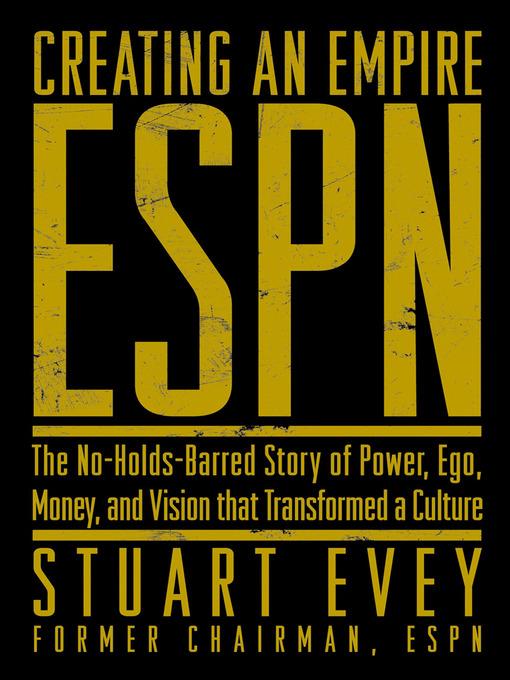
ESPN Creating an Empire
The No-Holds-Barred Story of Power, Ego, Money, and Vision That Transformed a Culture
کتاب های مرتبط
- اطلاعات
- نقد و بررسی
- دیدگاه کاربران
نقد و بررسی

August 23, 2004
Evey, founding chairman of the famous sports network, recounts his experiences as the cutthroat businessman central to the creation of what would become one of cable TV's most profitable and watched channels. He begins his memoir—the publication of which coincides with ESPN's 25th anniversary—by describing his relationship with his reclusive, eccentric, very wealthy boss, George Getty (of Getty Oil), and how that played into the Getty company's decision to put Evey at the helm of the burgeoning network. The narrative dashes back and forth between Getty's home in England, the oil firm's holdings in Mexico and Liberia, and, finally, to ESPN's broadcast home of Bristol, Conn. Less an analysis of ESPN's place in programming history than an egotistical blow-by-blow account of big business dealings, Evey's book barely illuminates the personalities behind the network itself (with a few brief exceptions) or the philosophy behind its success. Rather, it breathlessly extols the virtues of Evey's globe-trotting, big-check–signing bosses and adds excess drama to the stresses behind corporate mergers and acquisitions negotiated on Hawaii's beaches. In fact, Evey spends so much time detailing the various backstabbings and tough-guy business decisions he insists were necessary to the station's success, that when his tale ends with him being brought low by alcoholism and divorce, it doesn't inspire much empathy.

September 15, 2004
Former ESPN chairman Evey is the kind of guy who peppers his book with descriptions of his impeccable attire, the view from his 18th-floor Southern California office, and the plushness of his limo. He also includes the transcript of a long conversation between an associate and director Jim Simpson, purportedly to show what a great guy Simpson is but just happening to contain several paeans to Evey from Simpson. And, finally, he makes this seem more like an autobiography than the story of a network. These quibbles aside, one has to admire a man who, as vice president of diversified operations for Getty Oil, had the vision and guts to loosen that venerable company's purse strings when Bill Rasmussen came to him, hat in hand, with the wacky (for the late 1970s) scheme of launching a satellite cable TV all-sports network, who acted as its chairman for five years, and who then recognized that the time had come to sell a majority interest in it to ABC. Not essential, but libraries owning other accounts of ESPN (e.g., Michael Freeman's ESPN: The Uncensored History) will want it. Jim Burns, Jacksonville P.L., FL
Copyright 2004 Library Journal, LLC Used with permission.

September 1, 2004
ESPN has certainly had an odd history. Created out of nothing by the former communications director of the New England Whalers, funded by Getty Oil, overseen by a Getty Oil V.P. (Evey), the network was an idea so out-of-left-field that lots of people figured it wouldn't work. "Get it straight," Evey writes, "ESPN had no precedent." And, for quite a while, it looked as though it might have no real content, apart from peripheral sporting events that most people didn't watch anyway. Evey recounts the battles to win contracts to televise major events, and he introduces us to the personalities behind ESPN and to the enormous risks--financial and professional--required to launch a new television network. Not just a book about a sports network, it's also a story about the early days of cable television, when a lot of people still thought the idea of paying for programming was just plain loony. ESPN proved them wrong.(Reprinted with permission of Booklist, copyright 2004, American Library Association.)

























دیدگاه کاربران